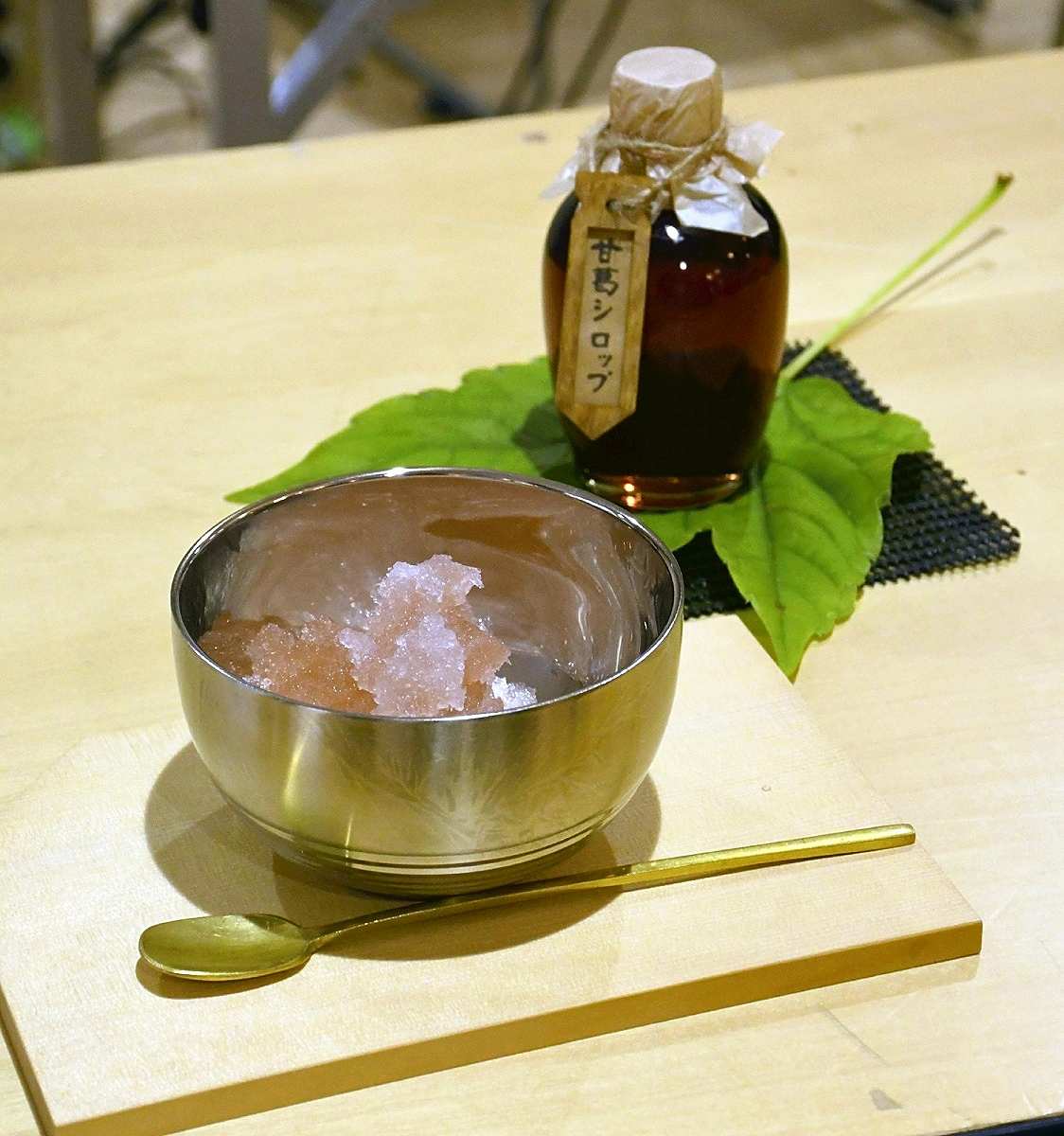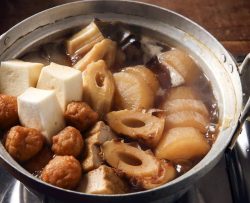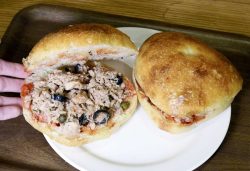
Shaved ice served with the newly developed syrup
15:00 JST, September 10, 2023
NARA — A group of experts has re-created an ancient sweetener that was traditionally made using reduced sap from the natsuzuta vine, a type of ivy.
“Amazurasen” was a popular sweetener in Japan as far back as 1,000 years ago, but had all but disappeared by the Edo period (1603-1867) following the introduction of sugar during the Muromachi period (1336-1573).
Presently, there are no plans to market the revamped syrup, but the group of experts — which includes Kayo Maekawa, a researcher at Nara Women’s University, and Sadahiro Hamasaki, the head of the processing department at Nara Prefecture Agricultural Research and Development Center — plan to use it at historical and cultural events to introduce people to the taste.
Amazurasen originated in Japan and is referenced in such writings as “Ma-kura no Soshi” (The Pillow Book) by Sei Shonagon, a court lady of the Heian period (794-late 12th century), and documents from the Nara period (710-784) stored in the Todai-ji temple Shosoin Repository in Nara.
Modern-day reboot
In 2011, a graduate student at Nara Women’s University became interested in the sweetener and attempted to recreate it with help from medicinal herbalist Akira Ishibashi (who passed away in 2014).
In 2019, Maekawa launched a project to re-create and raise awareness about the bygone syrup in cooperation with Housekibaco — a shaved-ice store with a number of Nara outlets, including at Himuro Shrine, where the god of ice is enshrined.
As part of her efforts, Maekawa decided to artificially reproduce the flavor in a bid to circumvent the extended period of time it takes to extract sap from the natsuzuta vine.
Maekawa recalled that the production process involved a lot of trial and error, noting that it was especially difficult to satisfactorily reproduce amazurasen’s noted fresh sweetness. However, after further research, Maekawa learned that persimmon tannin, which contains polyphenols, helped replicate amazurasen’s well-documented bitter overtones.
With help from Hamasaki, Maekawa believes she managed to get even closer to the original flavor after analyzing sweeteners made using natsuzuta sap sourced from across Japan. Now, based on Hamasaki’s recipe, which details levels of sucrose, persimmon tannin and other ingredients, Maekawa believes she has succeeded in fully recreating the taste of the original syrup.
A special event was held in Nara in July to introduce the rebooted sweetener and detail its development. Participants were able to enjoy the syrup served atop shaved ice, and Housekibaco plans to hold similar events in the future.
Meanwhile, Kotonoma Akari, a cafe, bar and variety shop in Nara, is considering offering sweets made with the syrup.
Amazurasen was very common in ancient times, and was even used to pay taxes to the ancient capital of Heijokyo (present-day Nara) and the ancient capital of Heiankyo (present-day Kyoto).
“This kind of historical information is not widely known,” Maekawa said. “We’re keen to pass on knowledge regarding amazurasen to future generations and raise awareness about the syrup throughout the country.”
Top Articles in Features
-

Tokyo’s New Record-Breaking Fountain Named ‘Tokyo Aqua Symphony’
-

Sapporo Snow Festival Opens with 210 Snow and Ice Sculptures at 3 Venues in Hokkaido, Features Huge Dogu
-

Tourists Flock to Ice Dome Lodge at Resort in Hokkaido, Japan; Facility Invites Visitors to Sleep on Beds Made of Ice
-

High-Hydration Bread on the Rise, Seeing Increase in Specialty Shops, Recipe Searches
-

Heirs to Kyoto Talent: Craftsman Works to Keep Tradition of ‘Kinran’ Brocade Alive Through Initiatives, New Creations
JN ACCESS RANKING
-

Japan PM Takaichi’s Cabinet Resigns en Masse
-

Japan Institute to Use Domestic Commercial Optical Lattice Clock to Set Japan Standard Time
-

Israeli Ambassador to Japan Speaks about Japan’s Role in the Reconstruction of Gaza
-

Man Infected with Measles Reportedly Dined at Restaurant in Tokyo Station
-

Videos Plagiarized, Reposted with False Subtitles Claiming ‘Ryukyu Belongs to China’; Anti-China False Information Also Posted in Japan

























